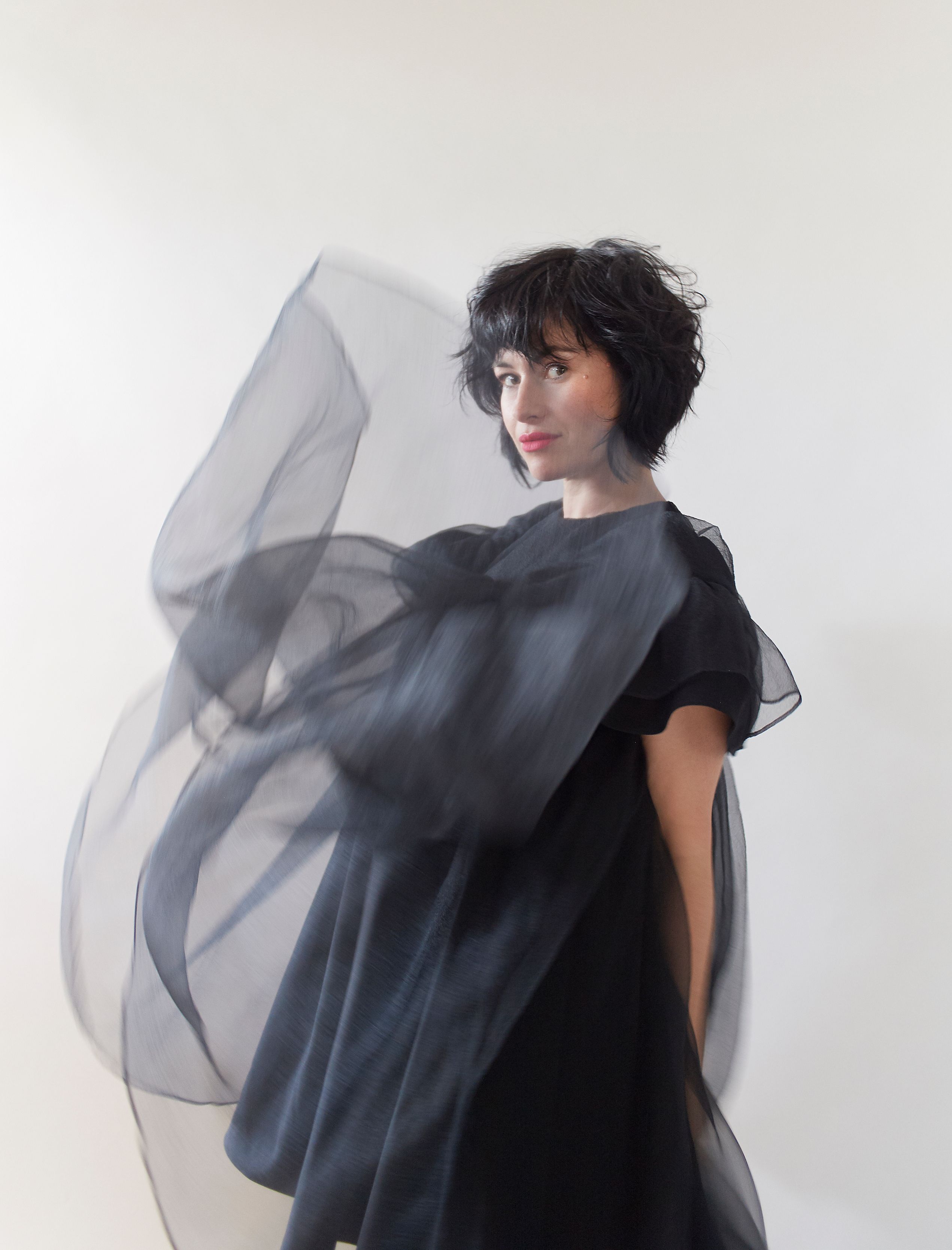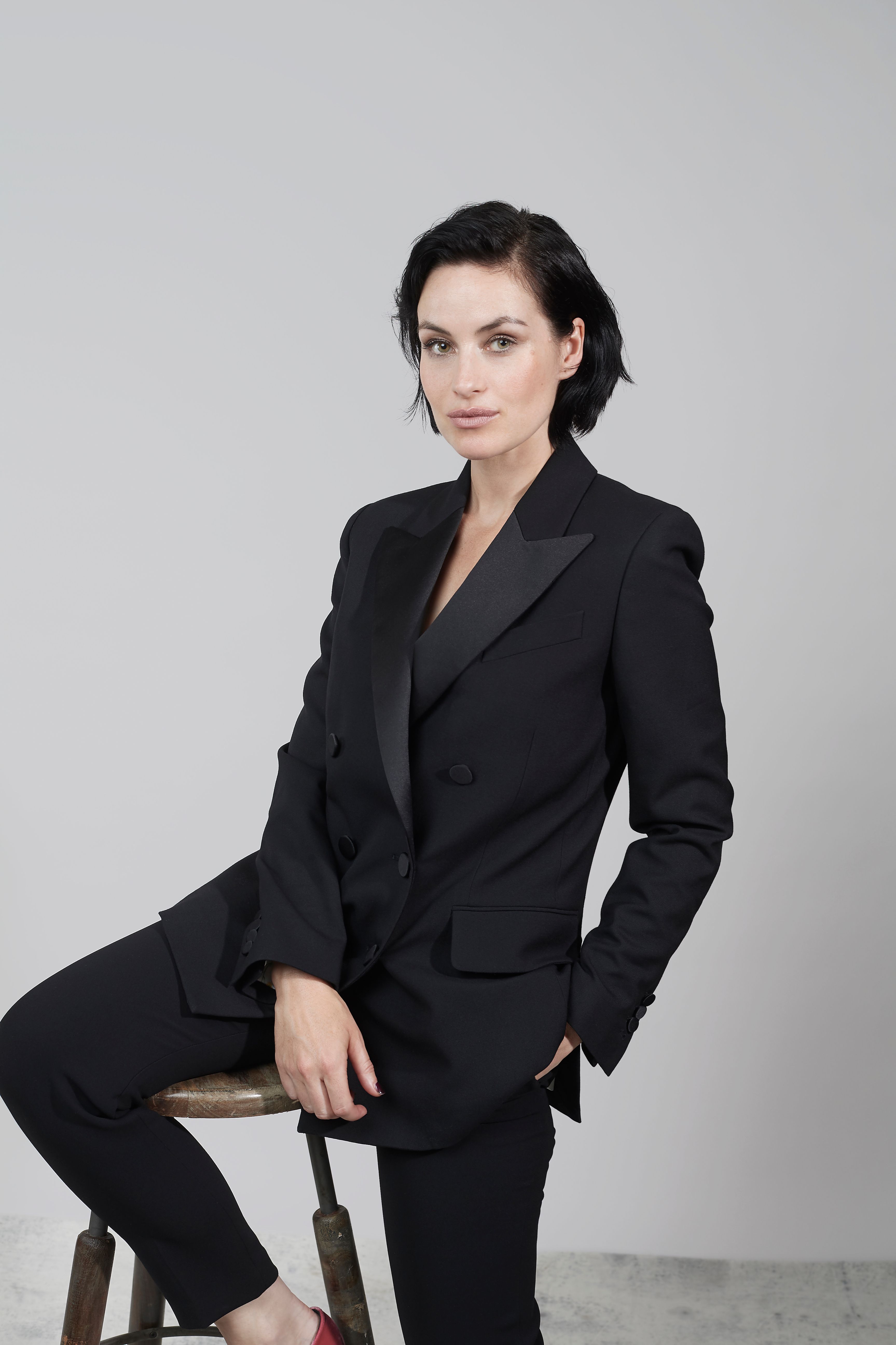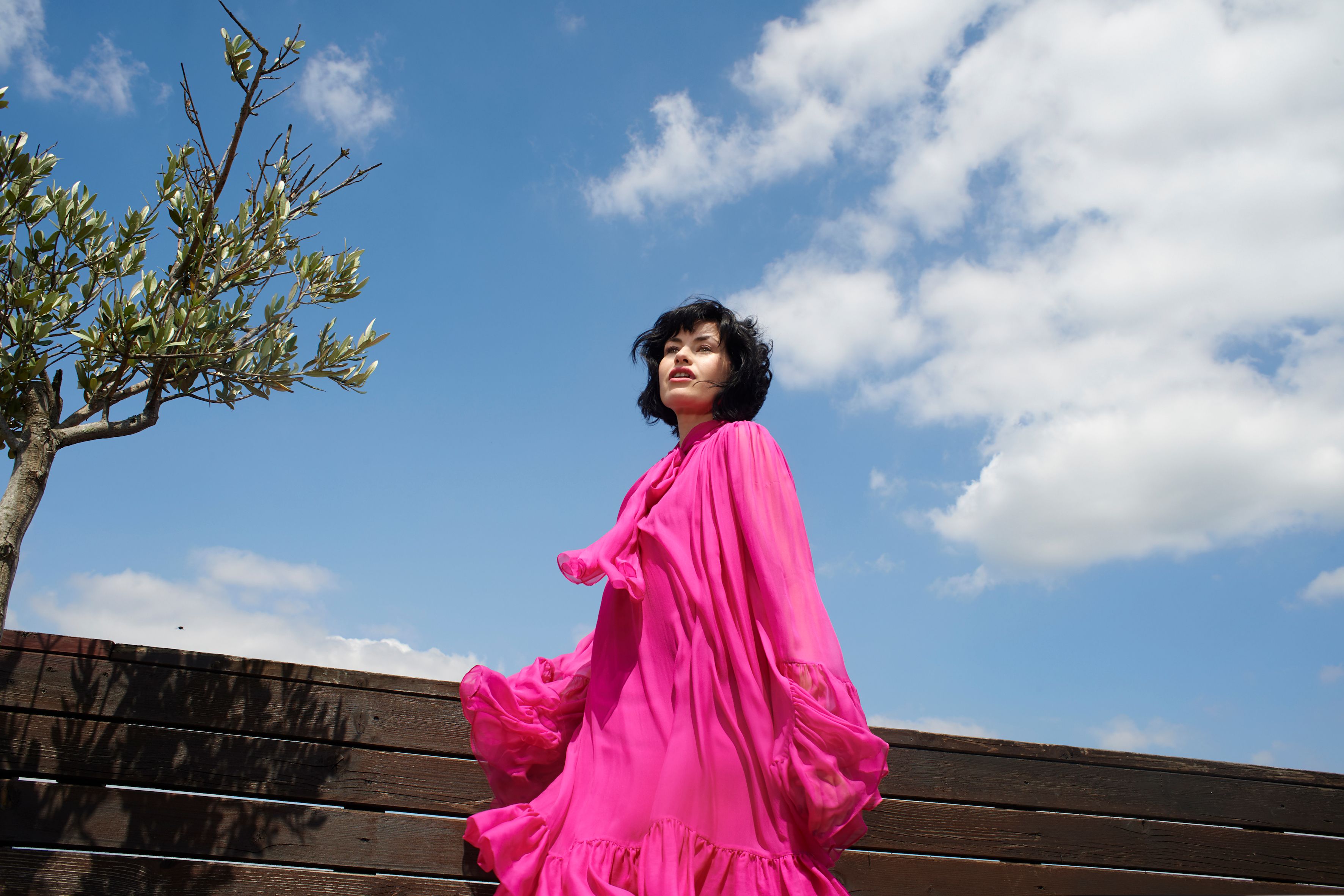
The Yorkshire-born Maimie McCoy is an actress with a penchant for exploring the darker sides of human nature, being instantly recognizable to much of the nation for her role as the mercurial femme fatale Milady de Winter in the hugely successful BBC drama The Musketeers. Notably, she has also chilled global audiences to the bone as the serial-killing Hungarian noblewoman Elizabeth Báthory in the Amazon-produced semi-documentary horror show Lore, and is currently on-screen as the cool, calm and collected inspector Lucienne Hassel in the ITV crime drama Van Der Valk, which is loosely based on the somewhat bleak evocation of humanity conjured up in the excellent novels of Nicolas Freeling. It’s interesting upon meeting her then, to find her to be an effervescent and open soul, who could not be further from the troubled characters she so effortlessly seems to inhabit on-screen. Here, she talks to Culture Collective about overcoming childhood anxiety, fostering resilience of spirit and the gift of motherhood.
How would you define your approach to acting?
My approach to acting is so instinctive. I don't really give it so much thought – it’s kind of all instinct, feeling and chemistry. I don't know whether that's come as a result of not having trained, or maybe of not having been in the industry for that long. I mean, I am working with an actor at the moment, and his whole life has been acting, from when he left school to being in his mid-50s, but my life hasn't been that at all. I did a weird post-modern performing arts course at university, which wasn't the kind of straight route, and then I just scrapped around for years, waiting tables and working for the family business while auditioning. My life has been relatively normal, in that respect. I obviously take what I do seriously, but I don't live and breathe it, because life has always kind of been other – and it’s all of the irregular things that are outside acting that have shaped me. I used to feel like an imposter because of that, but I think there’s probably strength in it now.
You’ve certainly played some strong women, Milady de Winter comes to mind particularly…
Well, it’s funny with Milady, because I just saw her as a heartbroken woman, and I went in for the delicate, fragile side of her – I never thought of her as being some kind of sexy, double crossing murderess. I just tried to tap into the rage and pain of being abandoned and left destitute with no options, no money, and no support – just totally alone. That was the thing I found most fascinating, actually – that there was absolutely no safety net for her as a woman in that society. She had kind of got herself to a place, and then it was obliterated, and she was in the gutter. So, I just tried to find that will and need to survive in her, which, of course, you can look at in so many women over the centuries. That sense of the resilience we have to have as women is still there now – juggling careers and children, and relationships… I feel like all the women I gravitate towards in my real life are doing an immense amount of work without even realizing it – men are having a hard time catching up.
What tools do you employ to find a character?
The patchwork of layers there are in creating a character is fascinating to me. Sometimes I work very physically to find someone, but sometimes it's just something completely random, like a little object that helps me visualize them. When I was reading the script for The Performance, I saw my character as one of those little Bambie toys that you used to get, where you push up the bottom and then the legs collapse. She's very elegant and poised, but as soon as you knock her, then there's this real fragility. I saw that element as a very physical thing. I also always choose a perfume for every job – wearing a scent, and being on-set in costume and make-up is so important for me to really feel in character. It's not the rehearsal space. I don't like that, generally. I find it too exposing, and it can still make me feel terrified – some of that is a very old fear, though, and it comes from being incredibly shy as a child. I was so shy. I was always hiding away, and I hated coming to the front in any situation.

How did you overcome that shyness to forge your career?
Well, my nerves are much more manageable now, but it’s still there. I’m definitely more comfortable being in my 40s, than I was at like, 21. My early auditions were so painful. I would be literally shaking with fear, and would invariably over-compensate. I remember one time, when I was about 24 years old, I was up for this massive film, and was very nervous, so when I went in to meet the director I was incredibly smiley and twinkly, and probably talked at him ten-to-the-dozen. I later got a call from the casting director, and she said, ‘I'm going to tell you this, because I think it'll be useful for you’, so, obviously, I thought, ‘Oh, God, this is going to be really bad.’ Then she told me that the director thought I was flirting with him. I mean, I know when I'm flirting, and that wasn't it! It couldn't have been further from it. He was shy, too, so must have been petrified. I was absolutely mortified.
What advice would you give to someone with similar anxiety?
I think it’s like with anything, you just have to dig through it, and you have to do that with compassion for yourself. It’s so important not to belittle whatever your experience is, because whatever it is that is troubling you, it’s real to you. But it's also a good thing to be able to get perspective, and think outside of ‘you’, so that these things don’t become too insular. I now know from having a child that putting your love and your attention somewhere else is a very good thing, and is a good balance. My daughter Agnes has completely changed how I see the whole world, and that's not just from being a parent, but also from being a parent of a child with a disability. So, I now constantly scan the world looking at how it's going to be for her, and that's an amazing perspective I never thought I would have. I’ve also realized how scared people still are to talk about disability, and that fear is kind of similar to shyness, in that it also comes from that thing of rather not saying anything, than saying the wrong thing – we definitely need to be able to have a much more open forum as a society.

Do you think that fear of saying the wrong thing is more prevalent these days in general because of social media?
Well, I am obsessed with people that never filter themselves, and I do sometimes worry that there is something less robust about the new generation, and that maybe the sense of being truly grounded or earthed is being lost a bit, because there's now that need for, for ‘likes’. I also think that thing of literally just staring into a mirror on your smartphone constantly, or manufacturing a kind of presentation of yourself can lead into so many negative things. It can be very narcissistic, and I worry where leads to. It particularly makes me worry as a woman in an industry where the pressure is so often about how you look.
Is there still a long way to go in terms of gender parity?
I mean, women are still not being allowed to age on screen that way men can – they can play their age without having to Botox the hell out of their faces. So, there are already these double standards in place, and I do worry that social media really amplifies that. It can feel like one step forwards, two steps back with all these things. We’ve just had our first female director on Van der Valk, who, like all the directors, was wonderful, but we've done nine episodes and only one has been a woman so far – so, there are definitely still stumbling blocks to overcome. I think my character in Van Der Valk has that same female survival quality we talked about, actually – that sense that, you're just going on and you're like an absolute juggernaut because there's nobody else really there for you; you're kind of just alone. I mean, you don’t have to be the strongest physically in life, but there’s a lot to be said for working on creating a foundation that means whatever the wind blows your way, you know you’re going to be able to deal with it.
Portraits by Amelia Troubridge